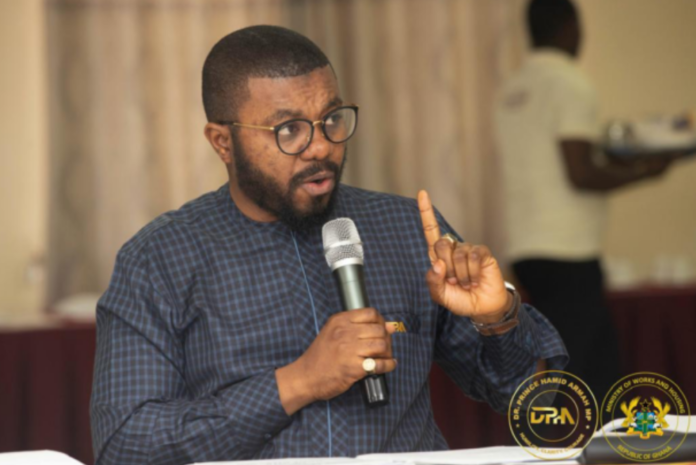The Chairman of the New Patriotic Party (NPP) manifesto committee on education Dr Prince Hamid Armah says beyond free SHS, which has been the flagship policy of the government, the education sector as a whole has seen a remarkable improvement which is too glaring to ignore.
The former NACCa boss said education in all its facets, under the Akufo-Addo- Bawumia led government is on a good path to its former glory with evidence of progress seen at the basic, Senior tertiary as well technical and vocational sectors.
Teacher welfare and professionalism as well education infrastructure have not been left out of the success story, he intimated.
He was speaking on the sidelines of the State of Education in Ghana, addressed by the sector Minister Dr Yaw Osei Adutwum.
The Minister had taken participants through a plethora of achievements by the government in the education sector, exhibiting the success story of the last seven years both in pictures and videos.
In an interview shortly after the programme, Dr Prince Armah who is also Member of Parliament for Kwesimintsim said the achievement of the government in education cannot be appreciated without an understanding of where the country was coming from.
Providing a trajectory of the education sector development, Dr Armah said the best way to assess a country’s performance in education is through international assessment trends.
From 2015 to 2016, prior to the coming into power by the NPP, he said the Early Grade Assessment both in Math and Literacy showed a depressing performance of the country’s youth with a huge percentage unable read, comprehend and write as well as tabulate.
“Results of WASSCE were low with an average of 30% pass rate in some of the core subjects… basic instructional supplies for teachers eluded the teachers even to an extent that even common chalk to write, they didn’t have. You remember the infamous I won’t give you chalk today mantra,” he stated.
From this background, Dr Prince Armah, said the Akufo-Addo-Bawumia government took up the challenge by instituting bold education reforms that impacted not just the education infrastructure but the curriculum as well.
“All these were to ensure quality products to meet emerging needs of a 21st century citizen” the chair of the manifesto committee stated.
Infrastructure Development
Dr Armah said over 2731 infrastructure projects have been completed so far which cuts across all the sectors of education. Out of the figure, 1430 infrastructure projects were at the basic level, 1144 at the SHS, 138 at the tertiary with two infrastructure projects each for model schools and TVET centres.
Contrary to claims by the opposition that government had abandoned school projects, the Deputy Works and Housing Minister said of the total projects completed, 1651 of them were legacy projects with 1080 of them being new projects.
These projects, he reiterated, are to ensure that the students study in a more congenial environment.
Curriculum
He was quick to add however that if the environment is good, but content of education is poor and below standard, the value will be the same.
For that reason, the government decided to change the curriculum and institute a standard based curriculum that will address the current needs of country.
“The world is revolving; 10 years ago the skills needed are no longer adequate for today’s world of work. So the question is what kind of Ghanaian do you want to see in the next 10 to 15 years? A team player, problem solver and other essential skills are what is needed.
He said the previous curriculum was not based on standard and competency; it was only hinged on the student’s ability to regurgitate or what we call chew poor pass and forget, which was inimical to growth and development of the country.
Dr Armah said, whilst at NACCa, he superintended over the production of text books which were also in consonance with the curriculum change.
According to him, a fidelity implementation plan has been done to ensure the objectives of the entire reforms have been met.
For the reforms to be successful, he said teachers were to be catered for in a way that will make them more professional.
Dr Armah intimated that a combination of a regulatory framework for teachers which includes the licensure exams have made the teaching profession acceptable global.
With the teacher reforms, a Ghanaian teacher can be accepted globally without necessarily having to take other exams in the countries they want to teach.
Dr Prince Hamid Armah said the combination of all these deliberate, well thought-through policies have led to great performances across the basic, secondary and tertiary education.

